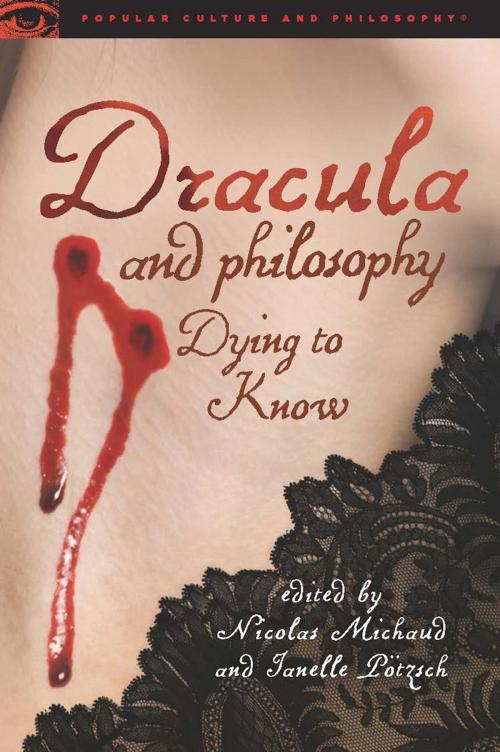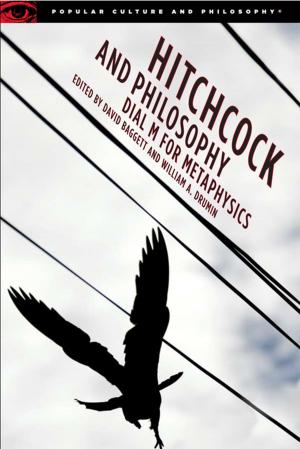| Author: | ISBN: | 9780812698954 | |
| Publisher: | Open Court | Publication: | July 14, 2015 |
| Imprint: | Open Court | Language: | English |
| Author: | |
| ISBN: | 9780812698954 |
| Publisher: | Open Court |
| Publication: | July 14, 2015 |
| Imprint: | Open Court |
| Language: | English |
Twenty-four nocturnal philosophers stake out and vivisect Dracula from many angles, unearthing evidence from numerous movies and shows-macabre, terrifying, tragic, and comic.
Altmann decides whether Dracula can really be blamed for his crimes, since it’s his nature as a vampire to behave a certain way. Arp argues that Dracula’s addiction to live human blood dooms him to perpetual misery. Karavitis sees Dracula as a Randian individual pitted against the Marxist collective. Ketcham contrives a meeting between Dracula and the Jewish theologian Maimonides. Littmann maintains that if we disapprove of Dracula’s behavior, we ought to be vegetarians. Mahon uses the example of Dracula to resolve nagging problems about the desirability of immortality. McCrossin and Wolfe, disinter some of the re-interpretations of this now-mythical character, and asks whether we can identify an essential Dracula. Pramik shows how the Dracula tale embodies Kierkegaard’s three stages of life. Barkman and Versteeg ponder what it would really feel like to be Dracula. The Greens publish some previous unknown letters between Dracula and Camus's Meursault. Vuckovich looks at the sexual morality of characters in the Dracula saga. De Waal explains that "Dragula" is scary because every time this being appears, it causes "gender trouble."
Twenty-four nocturnal philosophers stake out and vivisect Dracula from many angles, unearthing evidence from numerous movies and shows-macabre, terrifying, tragic, and comic.
Altmann decides whether Dracula can really be blamed for his crimes, since it’s his nature as a vampire to behave a certain way. Arp argues that Dracula’s addiction to live human blood dooms him to perpetual misery. Karavitis sees Dracula as a Randian individual pitted against the Marxist collective. Ketcham contrives a meeting between Dracula and the Jewish theologian Maimonides. Littmann maintains that if we disapprove of Dracula’s behavior, we ought to be vegetarians. Mahon uses the example of Dracula to resolve nagging problems about the desirability of immortality. McCrossin and Wolfe, disinter some of the re-interpretations of this now-mythical character, and asks whether we can identify an essential Dracula. Pramik shows how the Dracula tale embodies Kierkegaard’s three stages of life. Barkman and Versteeg ponder what it would really feel like to be Dracula. The Greens publish some previous unknown letters between Dracula and Camus's Meursault. Vuckovich looks at the sexual morality of characters in the Dracula saga. De Waal explains that "Dragula" is scary because every time this being appears, it causes "gender trouble."















